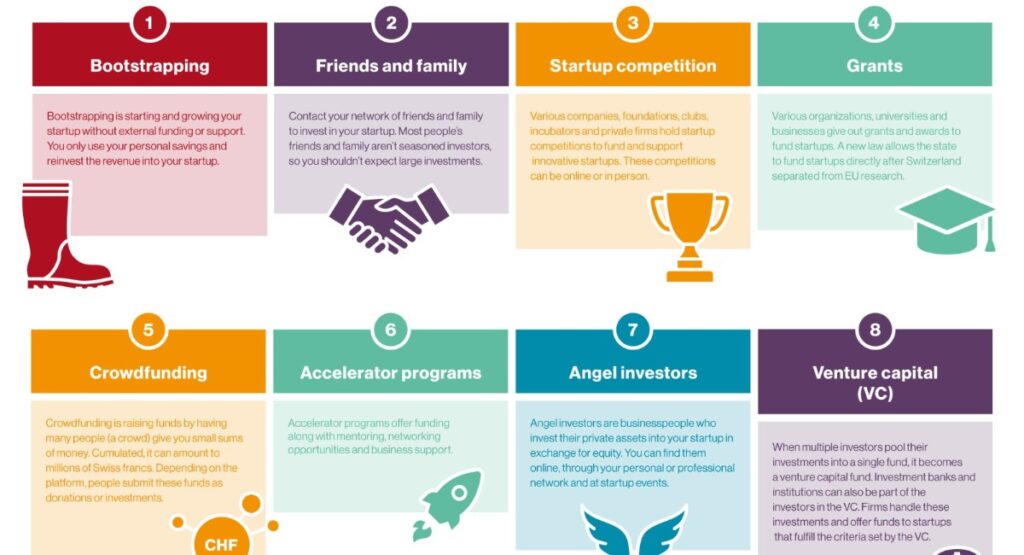
IP strategy for biotech startups (best practices and pitfalls to avoid).
It takes a tremendous amount of time and money to develop a new therapeutic product.
Without the right protection, your hard work can be gone in a moment if a competitor uses your methods or products to advance their businesses.
If you want to ensure the long-term success of your biotechnology startup, you need to know what it takes to protect it.
The key is to craft an intellectual property (IP) strategy to safeguard your assets.
In this guide, developed in collaboration with Philipp Marchand of Vossius & Partner, we’ll break down the best practices in developing a successful IP strategy you can use in your biotech startup to protect your inventions.
You’ll find on this page
Basics of IP protection for biotech startups.
In 2023, the biotech industry in Europe and the U.S. raised $81.1 billion in capital.
While the potential for a multimillion-dollar business exists, you have to meet high standards to be eligible for investors. Your IP is the most important asset you have — even more reason to get IP protection right.
Protecting IP in the biotech industry is mostly done with patents. Ideally, you should consider protecting your IP before your idea becomes a business.
The benefits of a granted patent.
Let’s start with a few basic facts about patents: A patent doesn’t grant you the right to do something. But it prevents others from doing what you have protected, giving you a 20-year-long monopoly on it. Of course, you can also license it.
A patent also facilitates trading. It makes an idea tangible and lets you put a monetary value on it, like an asset for your company. Some grants and accelerator or incubator programs consider it a prerequisite that you have your IP protected by a patent too (or a very good plan how to get there, in place). Investors consider a secured patent often as a critical factor.
Disadvantages of filing a biotech patent.
The main disadvantage is that the innovation becomes publicly available.
This means your invention isn’t a secret anymore, and it may be challenging to keep competitors at bay. Once your patent is published (and in the public), it still takes about 4-5 years to gain protection from the patent, so you are exposing your secrets to the competition without protection for some time.
The other disadvantage is the costs.
Filing a biotech patent can range anywhere from $10,000 to $20,000 on average.
For a young company, this can be a major price to pay to protect your IP.
A note about patent infringement.
Biotech patents often start with broad claims covering foundational inventions. As the technology advances, more patents are filed, covering more specific targets such as compounds or applications. The more specific you get, the more careful you must be whether there are more generic patents active.
For example, you may obtain a patent for an antibody that is directed to HER2+ as a target, like Herceptin. There may be another party with a patent that covers your sequences in a more generic sense. This means your specific sequences are still novel and inventive but fall within the scope of an existing patent.
This overlap can lead to a patent conflict, where you might infringe upon the broader patent, potentially requiring you to negotiate a license or face legal challenges to commercialize your antibody.
Five patentability requirements.
Here are five common requirements to follow when you file for a patent:
1. Your biotech invention has to be patented with subject matter.
To patent your biotech invention, clearly define and describe its unique biological or chemical components, processes or technologies, ensuring they are new, non-obvious and useful.
Outline its innovative application in the field to delineate and safeguard your intellectual property rights.
There are certain subject matters that can’t be patented, which include:
- Subject matter that is immoral, against public order or harmful to others (or the environment)
- Living or non-living substances in nature
- Plants and animals
- Biological processes for the production of plants and animals.
2. The invention must demonstrate industrial applicability.
Experts in your field must be able to reproduce or make use of your invention with their general knowledge.
3. The claims have to be novel.
To be considered “novel,” your invention has to be substantially different from any other invention or IP that is public knowledge.
“Prior art” in the context of IP refers to any publicly available information or existing knowledge related to an invention before a patent application is filed. It includes earlier patents, publications, products, or demonstrations that show the invention is not novel. To avoid prior art when trying to patent an invention, it’s crucial to conduct thorough research, including patent databases and technical literature, to ensure no similar or identical invention exists.
A useful mantra to live by: make sure to first patent your findings and only then publish them.
4. Proving the inventive step.
To prove the inventive step in a patent claim, you must demonstrate that the invention is not merely an assembly of known ideas.
For instance, if a claim presents five unique features and prior art discloses four, the inventive step hinges on showing that the final feature isn’t an obvious addition.
This often requires a nuanced argument that combining such features from disparate documents wouldn’t have been an obvious step for experts at the time of the invention.
5. Enablement: proof of being able to put the invention into practice.
The claims are also assessed for enablement. This means you will be assessed whether or not you can actually put the claimed invention into practice without requiring an inventive scale.
If all these requirements are fulfilled, the responsible patent office will grant your patent.
Are you looking to start up a biotech company?
”Basel Area Business & Innovation’s BaseLaunch accelerator was created to help launch and grow exceptional biotech ventures developing cutting-edge therapeutics.
Companies that work with us get guidance and support in many different ways, including how to go about licensing your IP and incorporating the company.
I look forward to discussing how we can help you take the next step of your journey.
Martyna WroblewskaManager Innovation and Sourcing BaseLaunch
Who owns the invention?
In Switzerland, an invention is transferred to the employer if made within the duties of an employment contract.
For most employees, an invention they make on the job would be transferred to their employer.
If there are multiple employers for the group of inventors, then all the parties that have rights are assigned to become co-owners of the patent application, which can make things tricky.
You should talk about this with all your co-inventors or the different employers before filing a patent application (i.e. how to handle all the formalities and how to sign the rights).
In the academic realm, particularly within universities, the ownership of inventions can vary based on institutional policies.
Typically, researchers at universities retain the rights to their inventions, but they may be required to grant certain rights to the university, especially if university resources or funding were used.
It’s imperative for academic inventors to consult their university’s technology transfer office to navigate the patent process and understand their rights and obligations regarding their inventions.
Want expert help in protecting your biotech startup?
For emerging companies, filing a biotech patent can be challenging, and many doubts about patentability, timelines, required data, geographical distribution or filing process arise.
Navigating biotech patents shouldn’t be a path you take alone.
If you want to ensure you and your startup are set up for success, adequate consultation from experts in the biotech startup field can prevent future roadblocks and pitfalls to ensure you have the right protection for your invention.
To deepen your understanding of IP strategy for biotech startups or for any legal help, you can reach out to Philipp Marchand at reach out to Vossius & Partner, one of BaseLaunch’s domain partners and an internationally renowned intellectual property firm.
Interested in learning more about this topic? Then check out our podcast episode with Philipp “Never underestimate the true value of IP”.


